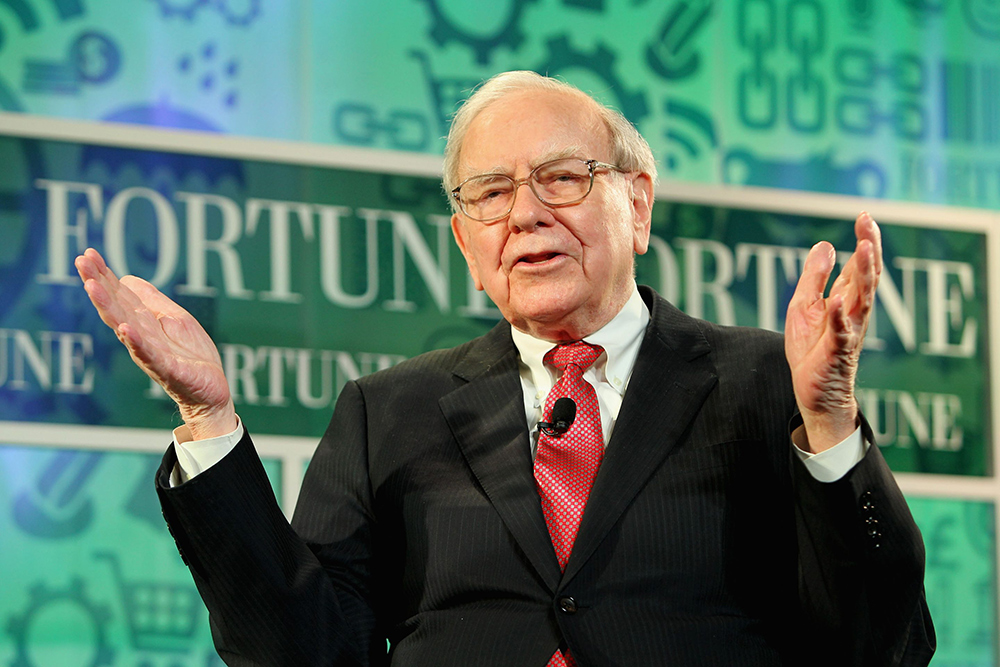
股票回購是政治上受到指責最多的公司策略。如果你問伊麗莎白·沃倫,她會告訴你,股票回購是赤裸裸的“市場操縱”,應該視為違法行為。馬薩諸塞州參議員沃倫認為,上市公司回購自己的股票時,希望能提高每股收益,他們的所作所為實際上是在扼殺創新。本可以用來興建新工廠、投資研發或招聘新員工的資金,卻只是被用來拉升股價,讓已經富裕的股東們和內部人士更富,而這卻是以經濟增長為代價。
但伯克希爾哈撒韋(Berkshire Hathaway)董事長兼CEO沃倫·巴菲特卻是股票回購策略的堅定支持者,他數十年來曾大量使用這種策略。92歲的億萬富翁巴菲特在2月發布的一年一度寫給股東的信中,直言不諱地反駁了對這種做法的批評意見。
他寫道:“當你被告知所有回購都對股東或國家有害,或對首席執行官特別有利時,注意這個人要么是經濟文盲,要么是花言巧語的煽動者(這兩個角色并不相互排斥)。”他認為,股票回購“在各個方面都有利于所有股東”。
但現在又有人批評回購策略,而且巴菲特很難給他打上“經濟文盲”的標簽。資產管理公司Grantham, Mayo, & van Otterloo(GMO)的聯合創始人兼首席投資策略師杰里米·格蘭瑟姆上周表示,他也認為股票回購應該被淘汰。他認為,股票回購幫助公司“在一個亟待不斷發展的世界中生存下去”,受益的是公司的利潤,卻不是整體經濟。
例如,《哈佛商業評論》的數據顯示,從2003年到2012年,標普500公司將54%的收益用于回購股票,另外37%用于發放股息,導致用于投資生產增長或員工的資金不足。
格蘭瑟姆在最近一集《億萬富翁探究》(We Study Billionaires)播客中表示:“基本上,我們的工人被殘酷壓榨,從上世紀70年代以來,他們就沒有參與實質性的生產率“增長”,而罪魁禍首現在卻是完全合法的。根源就是,股東們脅迫管理層,做管理層也一直想做的事情,那就是生活在一個你可以掌控一切然后回購股票的世界。”
在1982年以前,股票回購一直被視為操縱市場的非法行為。格蘭瑟姆解釋稱,這是因為內部人士通常會基于非公開信息決定回購。
他說道:“因此,股票回購當然是在助長股票操縱。我認為,這種行為肯定是非法的。”
這位對沖基金投資者認為,自從上世紀80年代,回購作為一種“新潮流”開始流行以來,美國的GDP和生產率增長持續放緩,這給了公司內部人士錯誤的激勵。如果公司不得不發放股息,經濟狀況將會大有改善。
他解釋稱:“刺激公司回購股票而不是新建工廠的一些動機消失,資本支出將有所增長。在資本支出方面,上市公司的表現一直非常糟糕。”
格蘭瑟姆還批評了巴菲特,特別是他認為股票回購與股息沒有區別的觀點。被尊稱為“奧馬哈先知”的巴菲特認為,股票回購只是向股東回饋價值的另外一種方式而已,但格蘭瑟姆卻認為,一家公司發放股息,是在對公司最熱心和最不熱心的股東之間平均分配收益,但股票回購并非如此。
他說道:“股票回購是在不斷淘汰對公司最不熱心的股東。如果你認為股票回購不會瘋狂推高股價,那只能證明你……缺乏想象力。股票回購當然會使股價上漲。”
格蘭瑟姆認為,如果CEO們認為回購等同于股息,而且不會操縱股市,那么他們只要發放股息即可。
他說道:“有人說股票回購與股息一樣。如果是那樣的話,那就發放股息吧。我會很開心,你也會很高興,只是沃倫不得不繳點稅。”然后他用諷刺的語氣說道:“對此我很抱歉。”(財富中文網)
翻譯:劉進龍
審校:汪皓
股票回購是政治上受到指責最多的公司策略。如果你問伊麗莎白·沃倫,她會告訴你,股票回購是赤裸裸的“市場操縱”,應該視為違法行為。馬薩諸塞州參議員沃倫認為,上市公司回購自己的股票時,希望能提高每股收益,他們的所作所為實際上是在扼殺創新。本可以用來興建新工廠、投資研發或招聘新員工的資金,卻只是被用來拉升股價,讓已經富裕的股東們和內部人士更富,而這卻是以經濟增長為代價。
但伯克希爾哈撒韋(Berkshire Hathaway)董事長兼CEO沃倫·巴菲特卻是股票回購策略的堅定支持者,他數十年來曾大量使用這種策略。92歲的億萬富翁巴菲特在2月發布的一年一度寫給股東的信中,直言不諱地反駁了對這種做法的批評意見。
他寫道:“當你被告知所有回購都對股東或國家有害,或對首席執行官特別有利時,注意這個人要么是經濟文盲,要么是花言巧語的煽動者(這兩個角色并不相互排斥)。”他認為,股票回購“在各個方面都有利于所有股東”。
但現在又有人批評回購策略,而且巴菲特很難給他打上“經濟文盲”的標簽。資產管理公司Grantham, Mayo, & van Otterloo(GMO)的聯合創始人兼首席投資策略師杰里米·格蘭瑟姆上周表示,他也認為股票回購應該被淘汰。他認為,股票回購幫助公司“在一個亟待不斷發展的世界中生存下去”,受益的是公司的利潤,卻不是整體經濟。
例如,《哈佛商業評論》的數據顯示,從2003年到2012年,標普500公司將54%的收益用于回購股票,另外37%用于發放股息,導致用于投資生產增長或員工的資金不足。
格蘭瑟姆在最近一集《億萬富翁探究》(We Study Billionaires)播客中表示:“基本上,我們的工人被殘酷壓榨,從上世紀70年代以來,他們就沒有參與實質性的生產率“增長”,而罪魁禍首現在卻是完全合法的。根源就是,股東們脅迫管理層,做管理層也一直想做的事情,那就是生活在一個你可以掌控一切然后回購股票的世界。”
在1982年以前,股票回購一直被視為操縱市場的非法行為。格蘭瑟姆解釋稱,這是因為內部人士通常會基于非公開信息決定回購。
他說道:“因此,股票回購當然是在助長股票操縱。我認為,這種行為肯定是非法的。”
這位對沖基金投資者認為,自從上世紀80年代,回購作為一種“新潮流”開始流行以來,美國的GDP和生產率增長持續放緩,這給了公司內部人士錯誤的激勵。如果公司不得不發放股息,經濟狀況將會大有改善。
他解釋稱:“刺激公司回購股票而不是新建工廠的一些動機消失,資本支出將有所增長。在資本支出方面,上市公司的表現一直非常糟糕。”
格蘭瑟姆還批評了巴菲特,特別是他認為股票回購與股息沒有區別的觀點。被尊稱為“奧馬哈先知”的巴菲特認為,股票回購只是向股東回饋價值的另外一種方式而已,但格蘭瑟姆卻認為,一家公司發放股息,是在對公司最熱心和最不熱心的股東之間平均分配收益,但股票回購并非如此。
他說道:“股票回購是在不斷淘汰對公司最不熱心的股東。如果你認為股票回購不會瘋狂推高股價,那只能證明你……缺乏想象力。股票回購當然會使股價上漲。”
格蘭瑟姆認為,如果CEO們認為回購等同于股息,而且不會操縱股市,那么他們只要發放股息即可。
他說道:“有人說股票回購與股息一樣。如果是那樣的話,那就發放股息吧。我會很開心,你也會很高興,只是沃倫不得不繳點稅。”然后他用諷刺的語氣說道:“對此我很抱歉。”(財富中文網)
翻譯:劉進龍
審校:汪皓
Ah stock buybacks, the most politically charged of all corporate manoeuvres. Ask Elizabeth Warren about them and she’ll tell you they’re pure “market manipulation” and should be made illegal. When public companies repurchase their own stock hoping to boost earnings-per-share, what they’re really doing is cannibalizing innovation, the Massachusetts Senator argues. Money that could have been spent investing in new factories, research and development, or hiring new employees, is instead used simply to lift stock prices, enriching wealthy shareholders and insiders at the expense of economic growth.
But Berkshire Hathaway chairman and CEO Warren Buffet is a firm believer in stock buybacks, having used them extensively for decades. And the 92 year-old billionaire didn’t pull his punches when discussing critics of the practice in his annual shareholder letter released in February.
“When you are told that all repurchases are harmful to shareholders or to the country, or particularly beneficial to CEOs, you are listening to either an economic illiterate or a silver-tongued demagogue (characters that are not mutually exclusive),” he wrote, arguing stock buybacks “benefit all owners — in every respect.”
But a new buyback critic has emerged — one that Buffett will have a hard time labeling an “economic illiterate.” Jeremy Grantham, the co-founder and chief investment strategist of Grantham, Mayo, & van Otterloo (GMO), said last week that he, too, believes stock buybacks should go the way of the dodo. Grantham argues that the practice helps companies “live in a world of shortage” that benefits their bottom line, instead of the wider economy.
For example, from 2003 through 2012, S&P 500 companies used 54% of their earnings to buy back their own stock and an additional 37% for dividends, leaving a lack of funds for investing in production growth or employees, according to data from the Harvard Business Review.
“Basically our workers have been royally screwed, they’ve not participated in the substantial productivity [growth] since the 1970s, and the main culprit is now completely legal,” Grantham said on a recent episode of the We Study Billionaires podcast. “That is, stockholders bullying management into doing what management always wants to do anyway — live in a world where you control everything and buy your own stock back.”
Up until 1982, buybacks were illegal and seen as a form of market manipulation. Grantham explained that this is because insiders often base their buyback decisions on non-public information.
“So of course it is facilitating stock manipulation,” he said. “And in my opinion, of course it should be illegal.”
The hedge funder argued that GDP and productivity growth have slowed in the U.S. since the “new fashion” of buybacks began to take hold in the 80s, giving corporate insiders all the wrong incentives, and the economy would be better off if companies were forced to pay dividends instead.
“Then some of the incentive to buy back stock rather than build a new factory disappears, and there will be a little bit more growth in capital expenditure, which has really done badly,” he explained.
Grantham went on to criticize Buffett specifically for claiming that buybacks are no different than dividends. The Oracle of Omaha believes the practice is simply another way to return value to shareholders, but Grantham said that when a company pays a dividend it distributes its earnings between its most enthusiastic and least enthusiastic shareholders evenly and that’s not the case with stock buybacks.
“You are constantly retiring the least enthusiastic shareholders. And if you think that that does not remorselessly push up the price of stocks then you are…unimaginative. Of course, it does,” he said.
Grantham argued that if CEOs believe buybacks are the same as dividends, and don’t manipulate the market, then they should just pay a dividend instead.
“People say it’s the same as dividends. Well, if that’s the case, whoopie, then pay out a dividend. Then I’m happy and apparently you’re happy, and Warren will have to pay some taxes,” he said, adding in a sarcastic tone “I’m sorry about that.”






